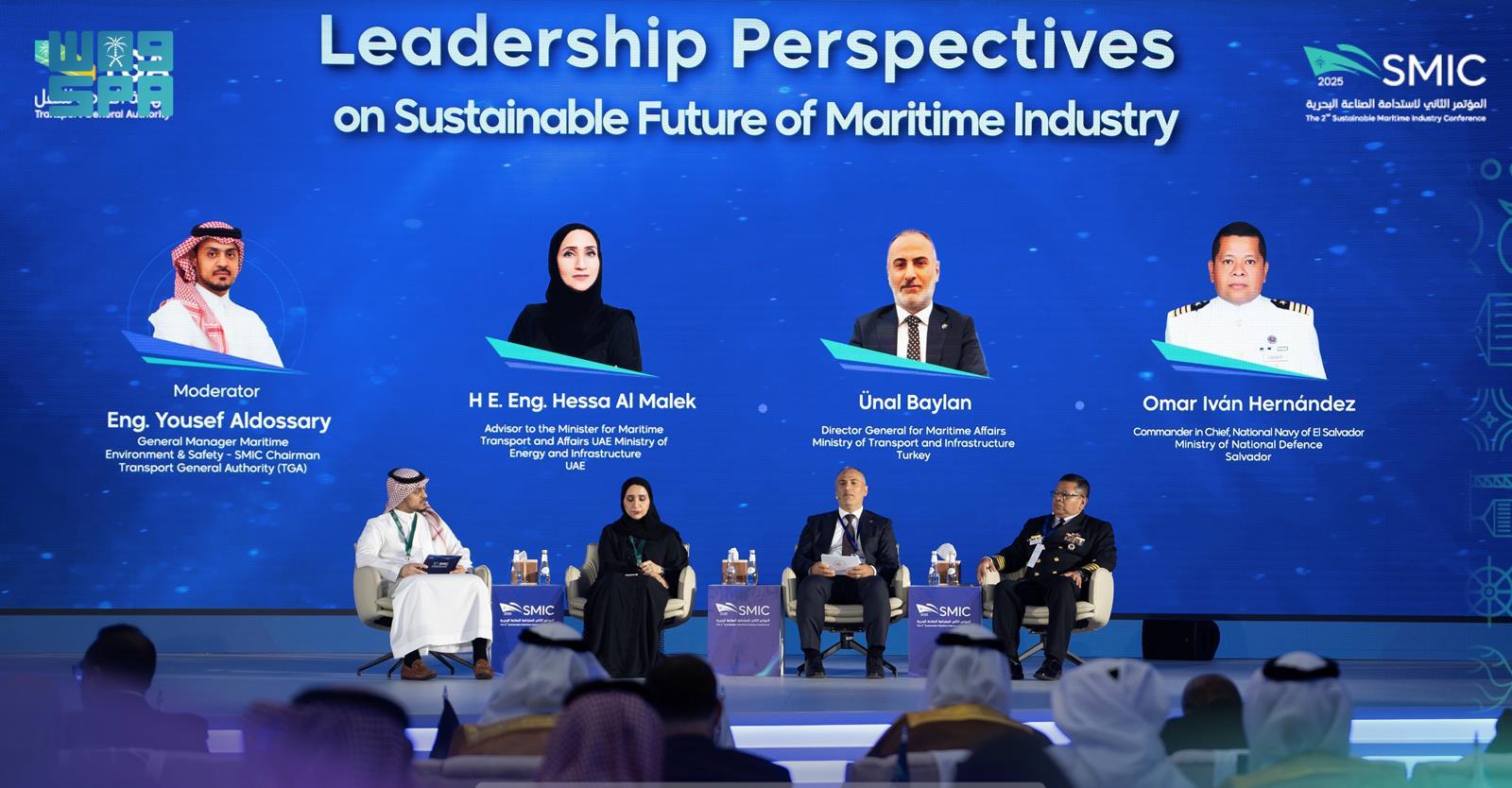Sustainable Maritime Industry Conference Begins

Jeddah, September 4, 2025, SPA -- The first day of the 2nd annual Sustainable Maritime Industry Conference, organized by the Transport General Authority at the Ritz-Carlton Jeddah, witnessed the signing of 10 strategic agreements between government entities and the private sector aimed at developing the maritime transport industry and enhancing its sustainability.
The Transport General Authority signed an agreement with the Ministry of Human Resources and Social Development to regulate and supervise the implementation of the Maritime Labor Contract Regulation, ensuring workers’ rights and strengthening the attractiveness of maritime professions. Another agreement was concluded with the Ministry of Health concerning medical examinations for seafarers, in addition to an agreement with the Saudi Ports Authority (Mawani) on regulating freight mediation, which will improve operational efficiency, enhance competitiveness, and support the objectives of the National Transport and Logistics Strategy.
In the field of research and development, the authority signed an agreement with King Abdullah University of Science and Technology (KAUST) to reduce carbon emissions, foster maritime innovation, and support specialized research projects. An agreement was also signed with the Gulf Petrochemicals and Chemicals Association (GPCA) to promote safe and sustainable maritime transport of petrochemicals and chemicals, alongside an agreement with the National Center for Waste Management (MWAN) to strengthen sustainable practices in managing marine waste.
The agreements reflect the authority’s commitment to building strategic partnerships aligned with Saudi Vision 2030, consolidating the Kingdom’s position as a global logistics hub and a key link between three continents. The conference also witnessed the signing of an agreement between the National Center of Wildlife (NCW) and the Saudi Investment Recycling Company (SIRC).
In parallel, the National Maritime Academy signed two agreements — one with the Faculty of Maritime Studies at King Abdulaziz University, and another with Asim Association for Orphan Training and Empowerment — while an additional agreement was concluded between Mediterranean Shipping Company Saudi Arabia and the Applied College at the University of Jeddah.
The conference further featured workshops and panel sessions exploring the future of the maritime sector and pathways for its development, with the participation of distinguished figures and international experts.
The first ministerial session gathered several ministers, including Saudi Minister of Transport and Logistics Services Saleh Al-Jasser, Bahraini Minister of Transportation and Telecommunications Dr. Shaikh Abdullah bin Ahmed Al Khalifa, Liberian Minister of Transport Sirleaf Ralph Tyler, Cypriot Minister of Shipping Marina Hadjimanolis, and Dominica Minister of Tourism Denise Charles-Pemberton.
Discussions addressed the importance of adopting sustainable practices in port operations and fleet management, as well as the role of digital transformation and technological innovation in enhancing maritime efficiency and competitiveness. The ministers also stressed the need to strengthen international and regional cooperation to tackle shared challenges, particularly reducing carbon emissions, improving safety standards, and developing specialized human capital.
The first session, titled “Leadership Perspectives on a Sustainable Maritime Industry,” explored global trends in maritime sustainability, the importance of innovation and modern technologies, and international cooperation to ensure a more efficient and competitive future for the industry.
The second session, “Energy Efficiency in Shipping: Pathways to Reducing Emissions," highlighted port operational efficiency, transitioning to more sustainable energy sources, and expanding the use of advanced technologies to limit carbon emissions.
The third session, “Marine Insurance and Financing.” addressed the development of innovative insurance and financing tools to support the sector.
Meanwhile, the fourth session, “Financial and Technological Solutions for Energy Efficiency," examined the role of financial and technological innovation in boosting energy efficiency in maritime transport.
The conference also hosted three workshops: “Implementing Decarbonization Strategies in Shipping Operations," “Developing a Roadmap for the Sustainability of Small and Medium-Sized Maritime Enterprises,” and “Underwater Noise Reduction: a Co-Benefit for Climate and Biodiversity Shipping Goals.”
-- SPA





